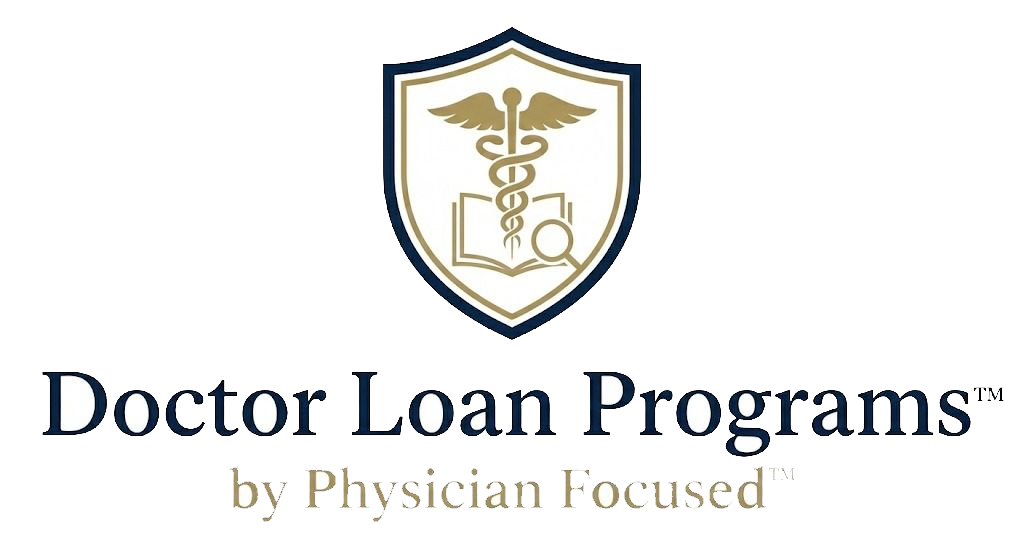You are on the brink of an exciting journey toward homeownership, and as a medical professional, you have unique advantages with doctor loans specifically designed for your needs. Understanding the key steps to navigate this process will empower you to make informed decisions and secure the most favorable terms. In this post, we will outline five vital steps to guide you through the doctor loan process, helping you transition smoothly into your new home while capitalizing on your prominent position within the community.
Understanding Doctor Loans
Your journey to homeownership is unique as a medical professional, and understanding doctor loans can help you navigate this pathway. These specialized mortgage products are designed specifically for doctors, providing tailored financial solutions that take into account your unique situation, including high student debt and fluctuating income during residency or fellowship. By grasping the crucials, you’ll be better equipped to make informed decisions on your future home.
What Are Doctor Loans?
To put it simply, doctor loans are mortgage programs specifically designed for medical professionals, including residents, fellows, and attending doctors. They often feature benefits such as lower down payment requirements and exclusion of student loan debt from your debt-to-income ratio, making it easier for you to secure financing for your new home despite your unique financial landscape.
Benefits of Doctor Loans
Doctor loans offer several advantages that make homebuying more accessible for you as a medical professional. These include lower down payment options, no private mortgage insurance (PMI) requirements, and an understanding of your income progressions during residency and beyond.
A standout benefit of doctor loans is their flexibility. Lenders typically allow you to borrow more by considering your future earning potential rather than just your current income. Additionally, these loans can accommodate varying forms of income, such as bonuses and additional compensation, helping you secure a mortgage even if your income varies during training. Consequently, you’ll find that doctor loans are designed to support you in achieving your homeownership goals more effectively than traditional loan options.

Assessing Your Financial Health
Clearly, understanding your financial health is a vital step toward homeownership, especially when considering doctor loans. Evaluate your current income, expenses, and savings to determine how much you can afford for a mortgage. A comprehensive assessment not only guides your budget but also prepares you for discussions with lenders. By having a clear picture of your finances, you can confidently navigate the home-buying process.
Credit Score Considerations
After evaluating your overall financial health, it’s time to examine your credit score. Lenders typically look for a score of 700 or higher to qualify for the best rates. With a solid credit score, you enhance your chances of securing favorable terms on your doctor loan. If your score falls short, consider strategies to improve it, such as paying down existing debt and ensuring timely payments.
Debt-to-Income Ratio
Credit your debt-to-income (DTI) ratio as another critical factor lenders examine. This ratio measures your total monthly debt payments against your gross monthly income, showing how much of your income goes toward payments. Most lenders prefer a DTI below 43%, but lower ratios are preferable to secure better loan terms. Aim for a balance between your debts and income to position yourself favorably in the eyes of lenders.
This ratio directly influences your borrowing capabilities. Maintaining a lower DTI demonstrates financial stability and responsible management of existing obligations, allowing lenders to see you as a lower risk. If your DTI is above the preferred threshold, consider strategies like paying off smaller debts or increasing your income. Reducing your DTI can significantly enhance your chances of receiving competitive loan offers. Prioritize this aspect as part of your overall financial assessment for successful homeownership.
Choosing the Right Lender
Now that you are ready to launch on your journey to homeownership, selecting the right lender is vital. A lender with experience in doctor loans can provide tailored support, helping you navigate the unique financial landscape you face. Look for one that understands your needs and can offer competitive rates and terms that fit your budget.
Researching Lender Options
By exploring various lender options, you can identify those that specialize in doctor loans. Start by asking colleagues for recommendations and research online reviews to gauge customer satisfaction. Pay attention to lenders who offer flexible repayment plans and have experience working with healthcare professionals similar to you.
Comparing Loan Terms
About comparing loan terms is crucial to ensure that you not only get the best interest rate but also the most advantageous overall loan structure. Below is a handy comparison of factors you should consider:
| Loan Feature | Considerations |
|---|---|
| Interest Rates | Fixed vs. Adjustable |
| Loan Duration | Length of the loan |
| Closing Costs | Fees involved in securing the loan |
| Monthly Payments | Budgeting for affordability |
Considering all aspects of loan terms can significantly impact your long-term financial health. Focus on understanding how interest rates, loan duration, closing costs, and monthly payments fit within your financial plan. Make sure to select terms that not only align with your current situation but also provide flexibility for your future, ensuring that you’re comfortably navigating your homeownership journey.
| Key Consideration | Impact on Your Finances |
|---|---|
| Interest Rates | Affects total repayment amount |
| Loan Duration | Impacts monthly payment size |
| Closing Costs | Additional upfront expenses |
| Monthly Payments | Direct effect on cash flow |

Preparing Your Documentation
Despite the complexities often involved in homeownership, preparing your documentation can streamline the process significantly. As a doctor, your financial situation may be unique, and lenders will require specific information to assess your eligibility for a doctor loan. By ensuring you have all of your documentation in order, you pave the way for a smoother application process and enhance your chances of securing favorable loan terms.
Required Documents
Across many lenders, the list of required documents generally includes proof of income, tax returns, bank statements, and student loan information. You will also need a valid identification, such as a driver’s license, alongside a verification of your employment status. Being prepared with these documents will help demonstrate your financial responsibility and readiness for homeownership.
Organizing Your Application
Application preparation is key to a timely review by lenders. Start by creating a folder—either digital or physical—where you can store all your required documents in one place. Ensure that each document is clearly labeled, making it easy for you to access the information when needed. This organized approach not only saves time but also helps convey your reliability to lenders, establishing a positive impression from the outset.
And, as you compile your documentation, consider utilizing a checklist to track the necessary items. This method not only helps you stay organized but also minimizes the risk of missing any significant paperwork. Aim to scan documents in high-quality formats for digital submissions, and keep physical copies organized in a manner that makes them easily accessible. An organized application package reflects your professionalism and commitment, qualities that are valued by lenders when considering your mortgage request.
Making an Offer on a Home
Keep in mind that making an offer on your dream home is an exciting yet significant step in your journey to homeownership. You’ll want to conduct thorough market research to ensure your offer is competitive while also reflecting the value of the property. Your agent will assist you in crafting an offer that aligns with your financial goals and the current market conditions. Don’t hesitate to ask for advice as you navigate this important decision.
The Home Search Process
Search for homes that meet your needs and preferences, keeping in mind your budget and location. Utilize online listings, attend open houses, and reach out to local real estate agents for insider information. This phase can include considering factors like schools, commute times, and neighborhood amenities. Be thorough in your search to find properties that not only fit your criteria but also feel like the right place for you.
Negotiating the Offer
About negotiating the offer, you should aim to present a compelling case to the seller through your terms and conditions. This includes factors like your proposed purchase price, closing timeline, and any contingencies. A well-structured offer can convey to the seller that you are a serious buyer and might provide a competitive edge in the negotiations.
To enhance your negotiating position, consider including a personal letter to the seller, sharing your connection to the home or your vision for the property. Additionally, work closely with your real estate agent to gauge local market dynamics—understanding recent sales trends can help you craft a more appealing offer. Be prepared for counteroffers and remain flexible, as adaptability is key to reaching a satisfactory agreement for both parties.
Closing the Deal
For many aspiring homeowners, closing the deal is the final step towards ownership. During this stage, you’ll finalize your mortgage paperwork, ensure that all contingencies are met, and officially transfer ownership of the property. It’s crucial to be prepared for this moment, as it brings together all the efforts you’ve invested in securing your doctor loan and finding the perfect home.
Understanding Closing Costs
At this stage, it’s important to have a clear grasp of closing costs, which typically range from 2% to 5% of your loan amount. These costs can include various fees such as appraisal fees, title insurance, and attorney fees. Understanding these expenses helps you budget effectively and avoid surprises at the closing table.
Finalizing Your Loan
Finalizing your loan involves several steps, including signing the closing documents and transferring the funds necessary to complete the transaction. You’ll also review the final loan terms to ensure everything is accurate. Once everything is in order, the seller will receive payment, and the title will be transferred to you.
In fact, it’s beneficial to thoroughly review every document before signing, as this ensures you fully understand your loan terms and obligations. Pay particular attention to the loan estimate and closing disclosure, which outline your payment schedule and interest rates. Being well-informed can save you from potential pitfalls and reinforce your confidence as you take this major step toward homeownership.
Conclusion
Upon reflecting on your path to homeownership through doctor loans, you now have a clear understanding of the necessary steps needed to secure your dream home. By educating yourself about your financial readiness, exploring loan options, gathering necessary documentation, and working with knowledgeable professionals, you can confidently navigate the process. Emphasizing your unique position as a medical professional, you can leverage specialized benefits to make your home purchase a reality. With these steps in mind, you are well on your way to becoming a proud homeowner.
FAQ
Q: What are the five vital steps for obtaining a doctor loan?
A: The five vital steps for obtaining a doctor loan are as follows:
1. Assess Your Financial Situation: Evaluate your income, debts, and credit score to understand your financial health.
2. Research Lenders Specializing in Doctor Loans: Look for lending institutions that offer loan products tailored specifically for medical professionals, as they often have unique benefits.
3. Gather Necessary Documentation: Prepare your financial documents, including pay stubs, tax returns, and proof of residency or employment to streamline the application process.
4. Get Pre-Approved: Submit your application to get pre-approved for a loan, which will give you a better idea of your budget and strengthen your position when making an offer on a home.
5. Choose the Right Property: Once pre-approved, start house hunting while considering your needs and preferences. After finding the right property, finalize your loan and close on the home.
Q: Do doctor loans require a down payment?
A: Many doctor loan programs offer options with little to no down payment requirement. These loans are designed to assist medical professionals who may have limited savings due to their educational debt. However, the specific down payment requirements can vary by lender and individual financial circumstances, so it’s vital to review the terms of each loan product you are considering.
Q: What are the benefits of choosing a doctor loan over a conventional mortgage?
A: Doctor loans come with several advantages compared to conventional mortgages:
1. No Private Mortgage Insurance (PMI): Most doctor loans do not require PMI, which can save you money on monthly payments.
2. Higher Debt-to-Income Ratio Limits: Lenders often allow for higher debt-to-income ratios, accommodating medical professionals with student loans.
3. Flexible Loan Structures: Doctor loans may offer customizable terms that better suit the unique financial situations of doctors, such as extended loan terms and competitive interest rates.
4. Special Considerations for Residency and Fellowship: Lenders typically factor in the future earning potential of doctors, meaning they may consider income anticipated from future practice rather than only current salary during residency or fellowship.




